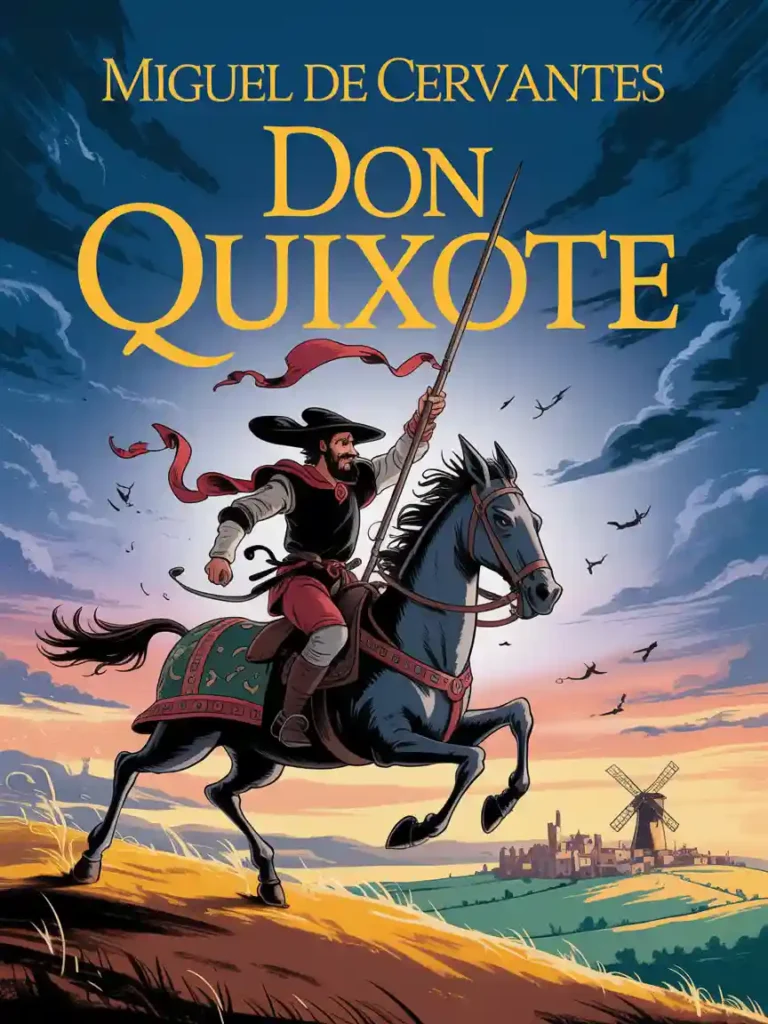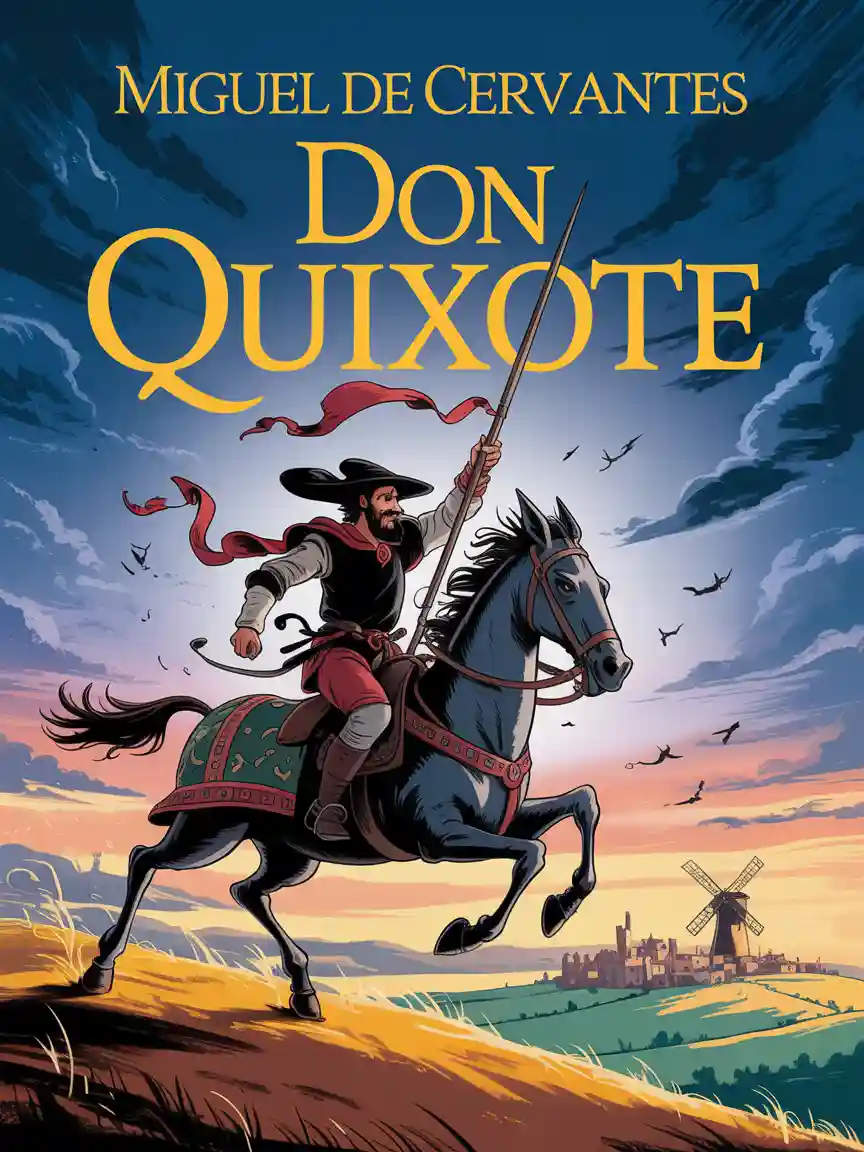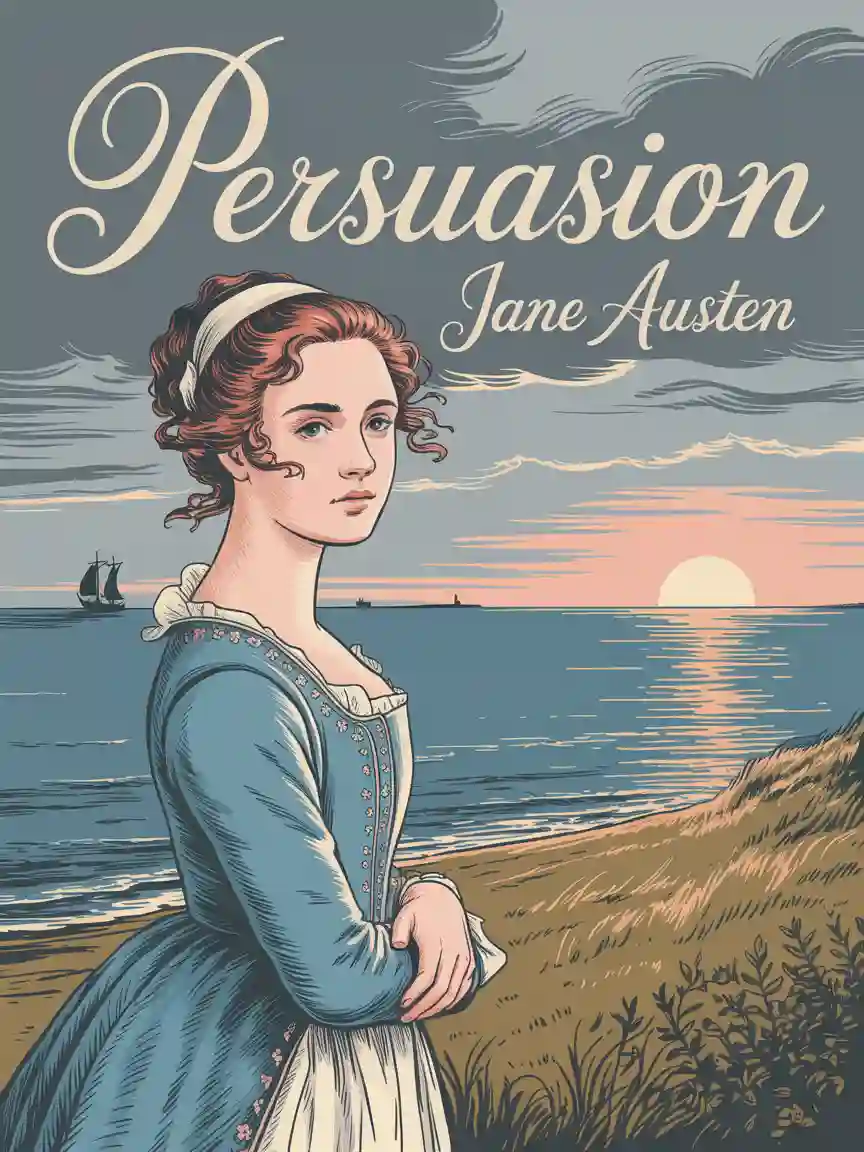CHAPTER 50
OF THE SHREWD CONTROVERSY WHICH DON QUIXOTE AND THE CANON HELD, TO-
GETHER WITH OTHER INCIDENTS
“A good joke, that!” returned Don Quixote. “Books that have been print-
ed with the king’s licence, and with the approbation of those to whom they
have been submitted, and read with universal delight, and extolled by great
and small, rich and poor, learned and ignorant, gentle and simple, in a word
by people of every sort, of whatever rank or condition they may be—that
these should be lies! And above all when they carry such an appearance of
truth with them; for they tell us the father, mother, country, kindred, age,
place, and the achievements, step by step, and day by day, performed by
such a knight or knights! Hush, sir; utter not such blasphemy; trust me I am
advising you now to act as a sensible man should; only read them, and you
will see the pleasure you will derive from them. For, come, tell me, can
there be anything more delightful than to see, as it were, here now displayed
before us a vast lake of bubbling pitch with a host of snakes and serpents
and lizards, and ferocious and terrible creatures of all sorts swimming about
in it, while from the middle of the lake there comes a plaintive voice saying:
‘Knight, whosoever thou art who beholdest this dread lake, if thou wouldst
win the prize that lies hidden beneath these dusky waves, prove the valour
of thy stout heart and cast thyself into the midst of its dark burning waters,
else thou shalt not be worthy to see the mighty wonders contained in the
seven castles of the seven Fays that lie beneath this black expanse;’ and then
the knight, almost ere the awful voice has ceased, without stopping to con-
sider, without pausing to reflect upon the danger to which he is exposing
himself, without even relieving himself of the weight of his massive ar-
mour, commending himself to God and to his lady, plunges into the midst of
the boiling lake, and when he little looks for it, or knows what his fate is to
be, he finds himself among flowery meadows, with which the Elysian fields
are not to be compared.
“The sky seems more transparent there, and the sun shines with a strange
brilliancy, and a delightful grove of green leafy trees presents itself to the
eyes and charms the sight with its verdure, while the ear is soothed by the
sweet untutored melody of the countless birds of gay plumage that flit to
and fro among the interlacing branches. Here he sees a brook whose limpid
waters, like liquid crystal, ripple over fine sands and white pebbles that look
like sifted gold and purest pearls. There he perceives a cunningly wrought
fountain of many-coloured jasper and polished marble; here another of rus-
tic fashion where the little mussel-shells and the spiral white and yellow
mansions of the snail disposed in studious disorder, mingled with fragments
of glittering crystal and mock emeralds, make up a work of varied aspect,
where art, imitating nature, seems to have outdone it.
“Suddenly there is presented to his sight a strong castle or gorgeous
palace with walls of massy gold, turrets of diamond and gates of jacinth; in
short, so marvellous is its structure that though the materials of which it is
built are nothing less than diamonds, carbuncles, rubies, pearls, gold, and
emeralds, the workmanship is still more rare. And after having seen all this,
what can be more charming than to see how a bevy of damsels comes forth
from the gate of the castle in gay and gorgeous attire, such that, were I to set
myself now to depict it as the histories describe it to us, I should never have
done; and then how she who seems to be the first among them all takes the
bold knight who plunged into the boiling lake by the hand, and without ad-
dressing a word to him leads him into the rich palace or castle, and strips
him as naked as when his mother bore him, and bathes him in lukewarm
water, and anoints him all over with sweet-smelling unguents, and clothes
him in a shirt of the softest sendal, all scented and perfumed, while another
damsel comes and throws over his shoulders a mantle which is said to be
worth at the very least a city, and even more? How charming it is, then,
when they tell us how, after all this, they lead him to another chamber
where he finds the tables set out in such style that he is filled with amaze-
ment and wonder; to see how they pour out water for his hands distilled
from amber and sweet-scented flowers; how they seat him on an ivory
chair; to see how the damsels wait on him all in profound silence; how they
bring him such a variety of dainties so temptingly prepared that the appetite
is at a loss which to select; to hear the music that resounds while he is at ta-
ble, by whom or whence produced he knows not. And then when the repast
is over and the tables removed, for the knight to recline in the chair, picking
his teeth perhaps as usual, and a damsel, much lovelier than any of the oth-
ers, to enter unexpectedly by the chamber door, and herself by his side, and
begin to tell him what the castle is, and how she is held enchanted there,
and other things that amaze the knight and astonish the readers who are pe-
rusing his history.
“But I will not expatiate any further upon this, as it may be gathered from
it that whatever part of whatever history of a knight-errant one reads, it will
fill the reader, whoever he be, with delight and wonder; and take my advice,
sir, and, as I said before, read these books and you will see how they will
banish any melancholy you may feel and raise your spirits should they be
depressed. For myself I can say that since I have been a knight-errant I have
become valiant, polite, generous, well-bred, magnanimous, courteous,
dauntless, gentle, patient, and have learned to bear hardships, imprison-
ments, and enchantments; and though it be such a short time since I have
seen myself shut up in a cage like a madman, I hope by the might of my
arm, if heaven aid me and fortune thwart me not, to see myself king of
some kingdom where I may be able to show the gratitude and generosity
that dwell in my heart; for by my faith, senor, the poor man is incapacitated
from showing the virtue of generosity to anyone, though he may possess it
in the highest degree; and gratitude that consists of disposition only is a
dead thing, just as faith without works is dead. For this reason I should be
glad were fortune soon to offer me some opportunity of making myself an
emperor, so as to show my heart in doing good to my friends, particularly to
this poor Sancho Panza, my squire, who is the best fellow in the world; and
I would gladly give him a county I have promised him this ever so long,
only that I am afraid he has not the capacity to govern his realm.”
Sancho partly heard these last words of his master, and said to him,
“Strive hard you, Senor Don Quixote, to give me that county so often
promised by you and so long looked for by me, for I promise you there will
be no want of capacity in me to govern it; and even if there is, I have heard
say there are men in the world who farm seigniories, paying so much a year,
and they themselves taking charge of the government, while the lord, with
his legs stretched out, enjoys the revenue they pay him, without troubling
himself about anything else. That’s what I’ll do, and not stand haggling over
trifles, but wash my hands at once of the whole business, and enjoy my
rents like a duke, and let things go their own way.”
“That, brother Sancho,” said the canon, “only holds good as far as the en-
joyment of the revenue goes; but the lord of the seigniory must attend to the
administration of justice, and here capacity and sound judgment come in,
and above all a firm determination to find out the truth; for if this be wanti-
ng in the beginning, the middle and the end will always go wrong; and God
as commonly aids the honest intentions of the simple as he frustrates the
evil designs of the crafty.”
“I don’t understand those philosophies,” returned Sancho Panza; “all I
know is I would I had the county as soon as I shall know how to govern it;
for I have as much soul as another, and as much body as anyone, and I shall
be as much king of my realm as any other of his; and being so I should do
as I liked, and doing as I liked I should please myself, and pleasing myself I
should be content, and when one is content he has nothing more to desire,
and when one has nothing more to desire there is an end of it; so let the
county come, and God he with you, and let us see one another, as one blind
man said to the other.”
“That is not bad philosophy thou art talking, Sancho,” said the canon;
“but for all that there is a good deal to be said on this matter of counties.”
To which Don Quixote returned, “I know not what more there is to be
said; I only guide myself by the example set me by the great Amadis of
Gaul, when he made his squire count of the Insula Firme; and so, without
any scruples of conscience, I can make a count of Sancho Panza, for he is
one of the best squires that ever knight-errant had.”
The canon was astonished at the methodical nonsense (if nonsense be ca-
pable of method) that Don Quixote uttered, at the way in which he had de-
scribed the adventure of the knight of the lake, at the impression that the de-
liberate lies of the books he read had made upon him, and lastly he mar-
velled at the simplicity of Sancho, who desired so eagerly to obtain the
county his master had promised him.
By this time the canon’s servants, who had gone to the inn to fetch the
sumpter mule, had returned, and making a carpet and the green grass of the
meadow serve as a table, they seated themselves in the shade of some trees
and made their repast there, that the carter might not be deprived of the ad-
vantage of the spot, as has been already said. As they were eating they sud-
denly heard a loud noise and the sound of a bell that seemed to come from
among some brambles and thick bushes that were close by, and the same
instant they observed a beautiful goat, spotted all over black, white, and
brown, spring out of the thicket with a goatherd after it, calling to it and ut-
tering the usual cries to make it stop or turn back to the fold. The fugitive
goat, scared and frightened, ran towards the company as if seeking their
protection and then stood still, and the goatherd coming up seized it by the
horns and began to talk to it as if it were possessed of reason and under-
standing: “Ah wanderer, wanderer, Spotty, Spotty; how have you gone
limping all this time? What wolves have frightened you, my daughter?
Won’t you tell me what is the matter, my beauty? But what else can it be ex-
cept that you are a she, and cannot keep quiet? A plague on your humours
and the humours of those you take after! Come back, come back, my dar-
ling; and if you will not be so happy, at any rate you will be safe in the fold
or with your companions; for if you who ought to keep and lead them, go
wandering astray, what will become of them?”
The goatherd’s talk amused all who heard it, but especially the canon,
who said to him, “As you live, brother, take it easy, and be not in such a
hurry to drive this goat back to the fold; for, being a female, as you say, she
will follow her natural instinct in spite of all you can do to prevent it. Take
this morsel and drink a sup, and that will soothe your irritation, and in the
meantime the goat will rest herself,” and so saying, he handed him the loins
of a cold rabbit on a fork.
The goatherd took it with thanks, and drank and calmed himself, and then
said, “I should be sorry if your worships were to take me for a simpleton for
having spoken so seriously as I did to this animal; but the truth is there is a
certain mystery in the words I used. I am a clown, but not so much of one
but that I know how to behave to men and to beasts.”
“That I can well believe,” said the curate, “for I know already by experi-
ence that the woods breed men of learning, and shepherds’ harbour
philosophers.”
“At all events, senor,” returned the goatherd, “they shelter men of experi-
ence; and that you may see the truth of this and grasp it, though I may seem
to put myself forward without being asked, I will, if it will not tire you, gen-
tlemen, and you will give me your attention for a little, tell you a true story
which will confirm this gentleman’s word (and he pointed to the curate) as
well as my own.”
To this Don Quixote replied, “Seeing that this affair has a certain colour
of chivalry about it, I for my part, brother, will hear you most gladly, and so
will all these gentlemen, from the high intelligence they possess and their
love of curious novelties that interest, charm, and entertain the mind, as I
feel quite sure your story will do. So begin, friend, for we are all prepared
to listen.”
“I draw my stakes,” said Sancho, “and will retreat with this pasty to the
brook there, where I mean to victual myself for three days; for I have heard
my lord, Don Quixote, say that a knight-errant’s squire should eat until he
can hold no more, whenever he has the chance, because it often happens
them to get by accident into a wood so thick that they cannot find a way out
of it for six days; and if the man is not well filled or his alforjas well stored,
there he may stay, as very often he does, turned into a dried mummy.”
“Thou art in the right of it, Sancho,” said Don Quixote; “go where thou
wilt and eat all thou canst, for I have had enough, and only want to give my
mind its refreshment, as I shall by listening to this good fellow’s story.”
“It is what we shall all do,” said the canon; and then begged the goatherd
to begin the promised tale.
The goatherd gave the goat which he held by the horns a couple of slaps
on the back, saying, “Lie down here beside me, Spotty, for we have time
enough to return to our fold.” The goat seemed to understand him, for as her
master seated himself, she stretched herself quietly beside him and looked
up in his face to show him she was all attention to what he was going to say,
and then in these words he began his story.





